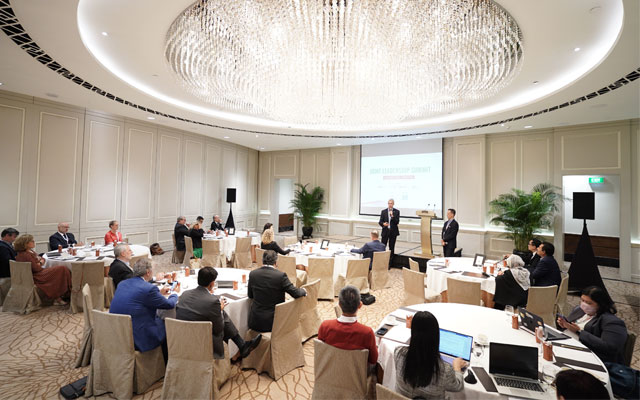
Five key areas of collaboration were agreed upon by some 100 business events stakeholders, trade associations, and government representatives today at the inaugural Joint Leadership Summit (JLS), held at The Fullerton Hotel, Singapore.

With the aim of boosting the growth of the industry through international and regional collaboration, the five areas are as follows:
1) Define business events as “controlled gatherings”
Business events are not public gatherings, but highly controlled assemblies. They need to be classified as distinct from generic mass gatherings. This will ensure that, in future situations, the sector can continue to operate and fulfil its strategic role for governments.
2) Establish business events as both an economic and tourism tool
Business events are economic, scientific, and professional in nature. Beyond serving as a key pillar of the tourism and hospitality sector, it also provides industry platforms to discuss and achieve strategic priorities. Therefore, it is imperative that business events are recognised as tools and platforms to be leveraged upon in the context of trade, economic development, social and investment, and policies should be mirrored as such.
3) Accessibility
The success of business events that gathers international delegates relies on the accessibility of respective markets. Accessibility is driven by cross-regional alignments on issues related to travel, immigration, and health & safety protocols. There needs to be cross-regional collaboration to reduce accessibility hurdles to empower business events to deliver their benefits.
4) Talent and capability development
The pandemic has caused a massive talent loss to the industry and attracting new and existing talent back will be among the key challenges to ensure the increasing demand for physical business events is met as the region continues to reopen. The region needs to come together to address and reduce the talent gap through talent sharing and collaboration on capability development initiatives.
5) Sustainability
While reviving the region’s business events industry remains the key focus, there is an understanding that sustainability plays a key role in the growth and revival of the industry. More than ever, delegates and attendees are demanding greener events. Therefore, we need to seize opportunities to collaborate internationally, regionally and locally between stakeholders (countries/cities, venues, organisers and suppliers) to step up our efforts to ensure that we not only deliver on our customers’ needs, but create a more sustainable future for the industry together.
The parties will reconvene in October 2023 to review the progress and discuss additional measures to drive the next stage of growth for the region’s business events industry.
Supported by the Singapore Tourism Board and co-organised by the Association of Event Organisers, Singapore Association of Convention & Exhibition Organisers & Suppliers, Society for Independent Show Organizers and UFI, The Global Association of the Exhibition Industry, the Asia CEO Summit will continue to serve as the definitive networking and learning event for the business events sector for the next two years in Singapore.




















